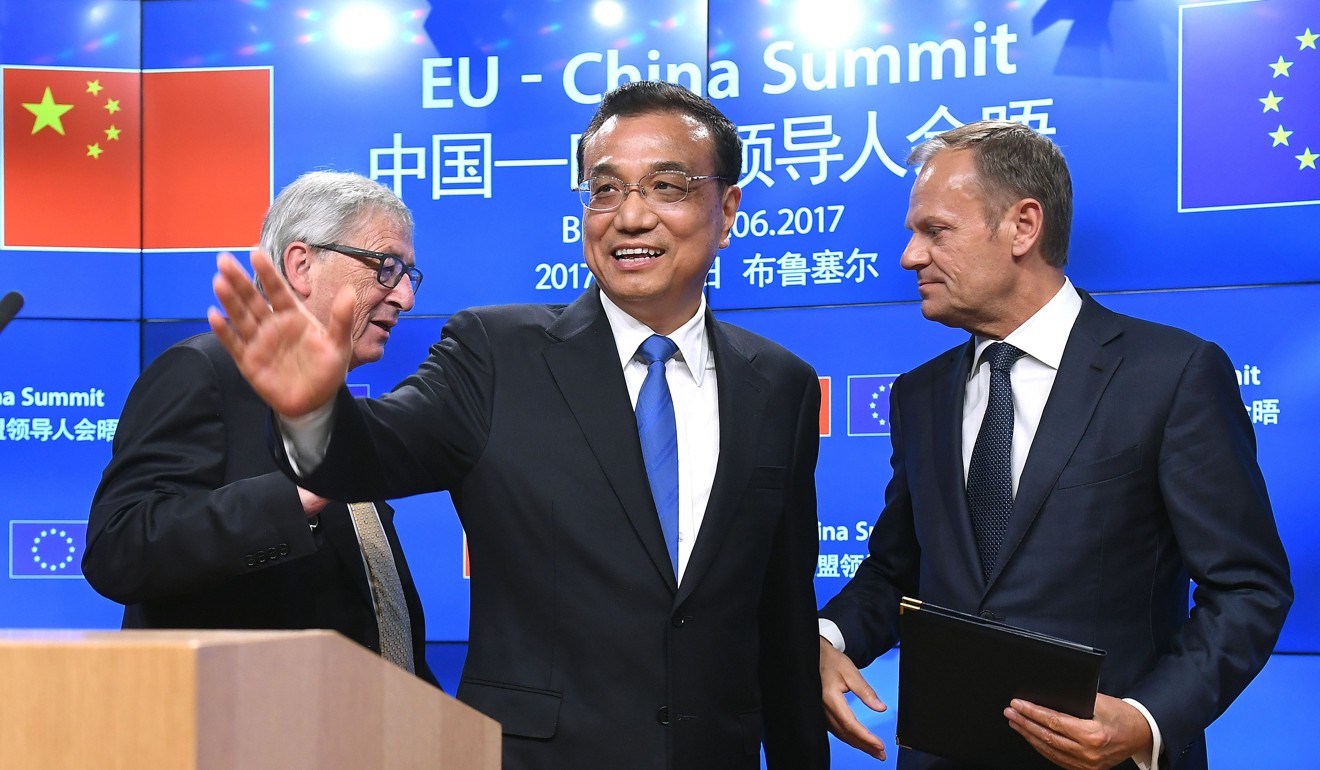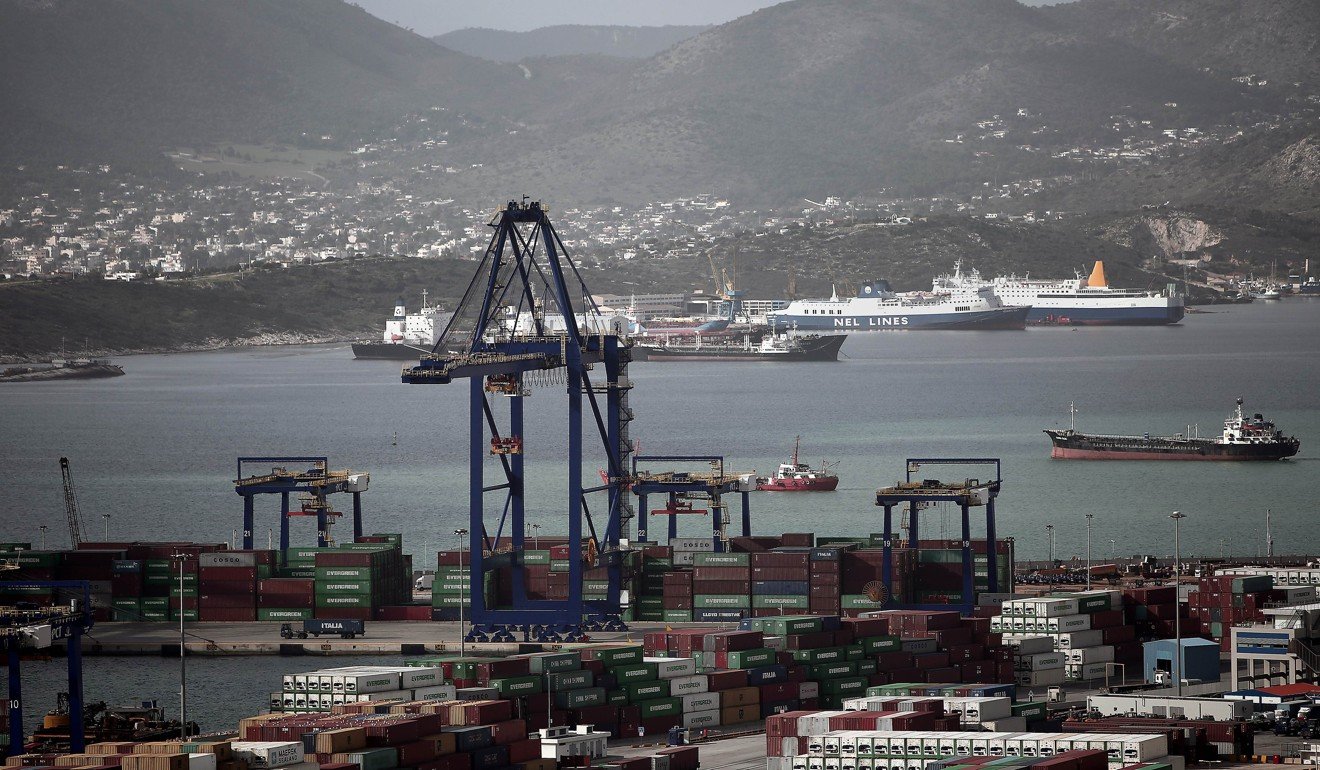
EU presents (nearly) united front against China’s ‘unfair’ Belt and Road Initiative
Document denouncing infrastructure project was signed by all but one EU ambassador in Beijing as concerns grow over Chinese influence on continent
Relations between China and Europe could face uncertainty as EU member states try to build a united front against Beijing’s Belt and Road Initiative, observers said.
Twenty-seven out of 28 EU ambassadors in Beijing, with Hungary the only exception, are reported to have signed a document denouncing the global infrastructure project for hampering free trade and giving an advantage to Chinese companies.
The Europeans’ concerns may overshadow an upcoming summit between China and the EU, scheduled for July, as the bloc has expressed increasing concern about Beijing’s influence over the continent.
Even though China and the EU have strong trade and investment ties, the bloc has criticised China’s role in member states such as Greece, Hungary and the Czech Republic as well as its attitude towards intellectual property.

The document said China was attempting to shape globalisation to suit its own interests, and the Belt and Road Initiative – which involves a series of transcontinental infrastructure projects to link China with Europe and Africa – is “pursuing domestic political goals like the reduction of surplus capacity, the creation of new export markets and safeguarding access to raw materials”.
The document’s existence were first reported by German business newspaper Handelsblatt, and sources close to the EU confirmed its existence.
But Chinese Foreign Ministry spokesman Hua Chunying said in a press briefing on Thursday that the EU had clarified the issue and that the Handelsblatt report was inaccurate.
Jyrki Kallio, a senior researcher at the Finnish Institute of International Affairs, said the EU was worried that heavy Chinese investment may discourage individual member states from criticising China on issues such as human rights.
“Whether originally intended by China or emerging as a, no doubt, welcome side effect, China has been putting a wedge between some EU states, or between member states and the union,” Kallio said.
Cui Hongjian, a European affairs expert at the China Institute of International Studies, said the document was meant to show the EU has a united stance on China.
“There has been a lot of discussion that the EU does not have a common policy towards China, and in particular the Belt and Road,” he said. “It is clear that EU countries are divided on Belt and Road, but I don’t think that this division is something we need to worry about. It’s a question of who wants to participate, and how deeply.”
Jan Weidenfeld, head of the European China Policy Unit at the Mercator Institute for China Studies, said the document reflected “a set of concerns that people have been expressing in various parts of Europe” after heavy Chinese investment had increased Beijing’s influence over some of the smaller and poorer countries.

Much of China’s investment in southern and eastern parts of Europe has been in utilities and energy, or involves in existing infrastructure projects, such as the Port of Piraeus in Greece, where Chinese state-owned firm Cosco Shipping had acquired 51 per cent stake.
Weidenfeld said some smaller Central and Eastern European nations were “sobering up” after their initial hopes that the Belt and Road Initiative might fund major new infrastructure projects, whereas Beijing had just relabelled some existing projects as being part of the project.
“Chinese firms prefer to invest in existing infrastructure, primarily in utilities and the energy sector, but there has not been anything new,” Weidenfeld said. “There have been lots of investment and financing promises, and few of them have actually come to fruition.”
French President Emmanuel Macron said during his visit to China in January that the Belt and Road Initiative could not be one way, and has pushed Beijing to increase market access for French companies.
Weeks later, German Chancellor Angela Merkel insisted that Germany remained committed to free trade but it must be reciprocal.

